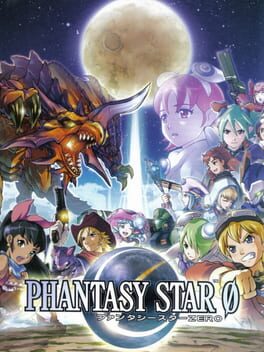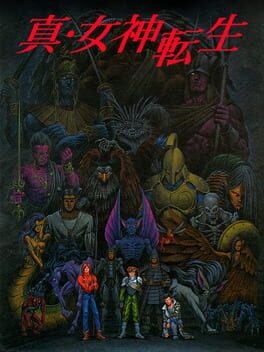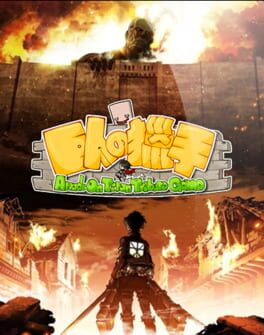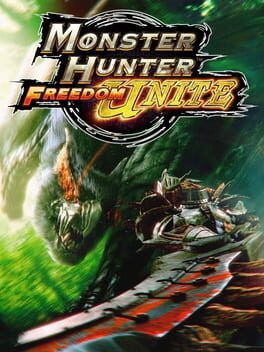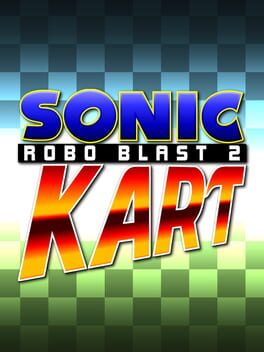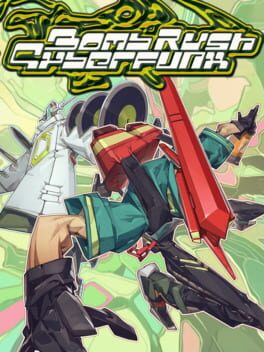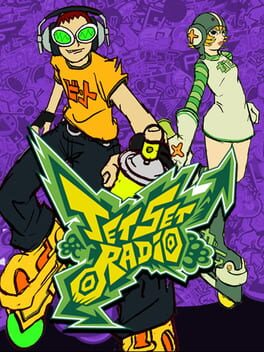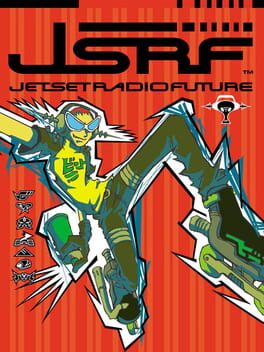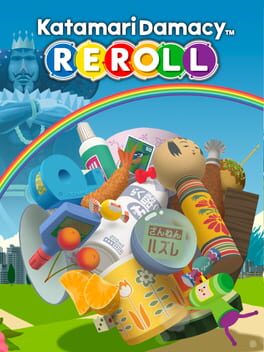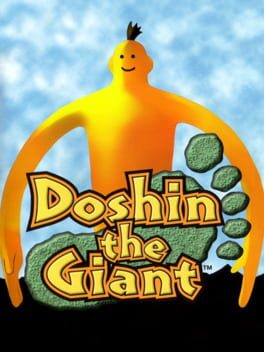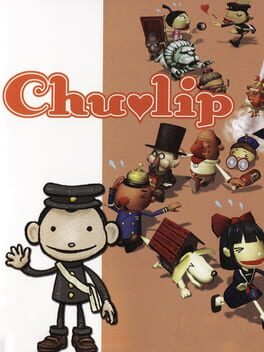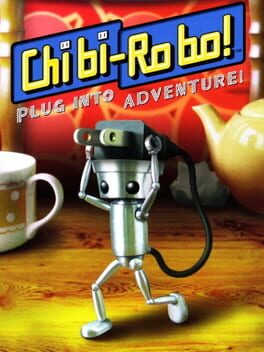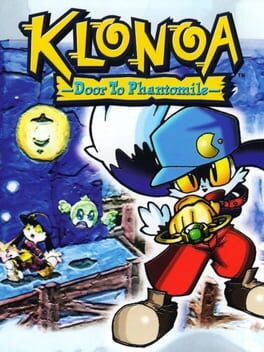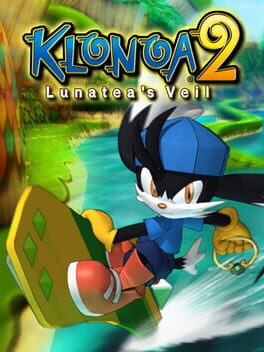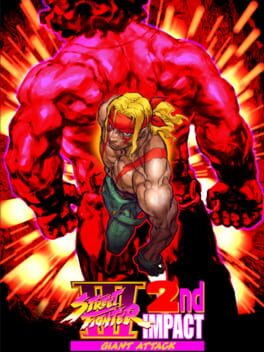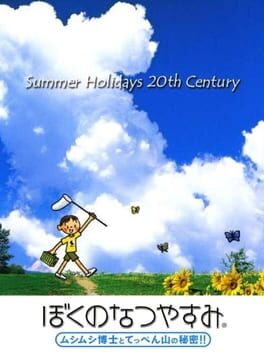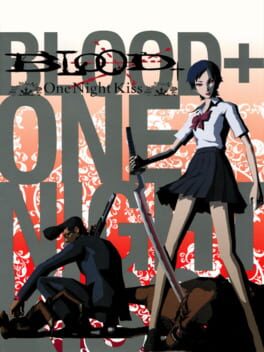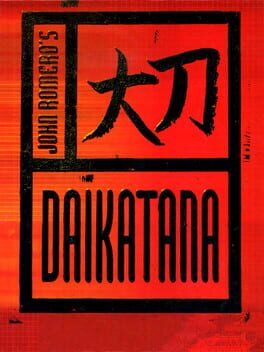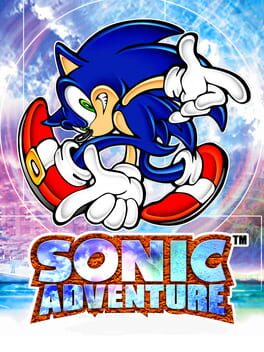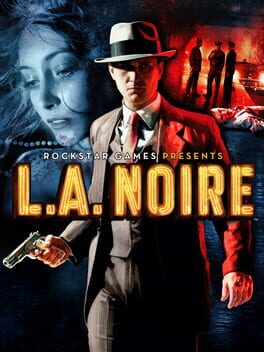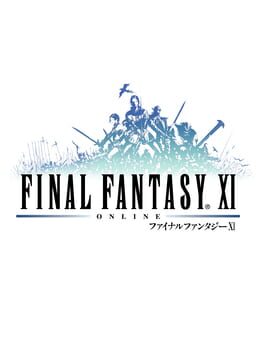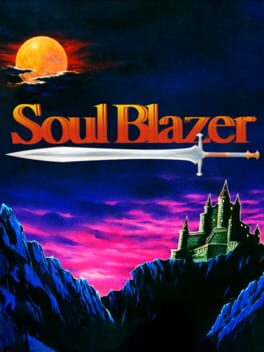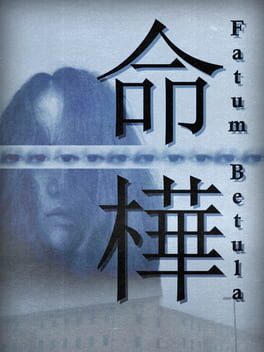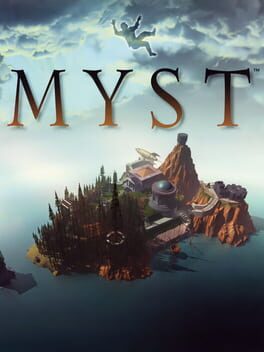Kraby
8 reviews liked by Kraby
Umihara Kawase
1994
(Played via "Sayonara Umihara Kawase+" on Vita)
Umihara Kawase is a game about a young girl with a heavy backpack and her trusty elastic fishing line. Together, they will brave perilous feats of platforming wonder, through a surreal coastal landscape, featuring what appears to be mutant fish with legs, school supplies, and vegetables. Mix in some unrelentingly cheerful background music, and you've got a surprisingly relieving atmosphere for a game where you'll die again and again. I feel as though games like these gain a reputation as "streamer games", like the ones where you go to see your favorite internet personality's soul get crushed as they lose all their progress to a single mistake. Umihara Kawase isn't like that though. It requires precision, no doubt, and it can be very punishing, but the stage-based progression means that you only have to overcome challenges one at a time. Failure rarely sets you back very far unless you lose all your lives, of which you get 10 per run.
You can fire your fishhook in 8 different directions, and can latch onto almost any surface/object. From there, you can extend/retract your line at will. If it's a fish you've latched onto, you can fish it up to eliminate the threat. If it's a wall, then momentum and physics manipulation is the name of the game. Most of your time will be spent grappling, swinging, and slingshotting yourself through stages. It eases you into the mechanics early on, despite ramping up in difficulty quickly. There's also alternate exits that lead to entirely different stages, giving nice replay value. You can do some real wacky maneuvers with your fishing line, the kind of stuff that you'd want to show your friends back in '94. Fortunately, this is the only Super Famicom game I'm aware of that lets you save several replays of stages directly to the cartridge.
One of the game's more annoying quirks are the random, frequently spawning enemies. They're an inconvenience, plain and simple. Sometimes you'll have the perfect swing down, and a fish will suddenly spawn right where you intend to land. This game also has boss stages that last an unreasonably long amount of time. Not only do they last way longer than they need to, it's usually just a matter of survival and waiting out the clock, which is difficult, but not very fun. The other big flaw this game has is one that you won't even realize at first. If you arrive at "Field 28", just know that the game has deemed you unworthy. It's a head-scratcher of a design choice; There's a hidden 30-minute time limit being tracked as you play, and if you're too slow, you're whisked away to one of several "end fields", and greeted with an early ending for finishing it, credits and all.
Interviews with Toshinobu Kondo, the game's main developer, reveal interesting tidbits, like how the game doesn't actually have levels 9, 13, and 19. They were explicitly left out to keep players coming back and trying new strategies, in search of these elusive missing levels. That's a a really funny way of making your game have lasting appeal, and it's something that could never be possible in our current age of information. I also recommend this archived interview from VG/247. It's a small peek into the world of being an independent Japanese developer in the 90s, and it's the sort of thing that I find endlessly fascinating.
Umihara Kawase is so naturally fun to play that I keep coming back to experiment and try new techniques. Even with its flaws, I'd call this a true hidden gem of the Super Famicom, and it's worth giving it a shot for at least a few runs. You can try it if you have Nintendo Switch Online (make a JP eShop account and download their SFC app), but I recommend the PC version for ease of access, a practice mode for any stage you've reached, and a map that shows you what order the stages are actually laid out in. Play it long enough, and you may very well get hooked just like I did.
Umihara Kawase is a game about a young girl with a heavy backpack and her trusty elastic fishing line. Together, they will brave perilous feats of platforming wonder, through a surreal coastal landscape, featuring what appears to be mutant fish with legs, school supplies, and vegetables. Mix in some unrelentingly cheerful background music, and you've got a surprisingly relieving atmosphere for a game where you'll die again and again. I feel as though games like these gain a reputation as "streamer games", like the ones where you go to see your favorite internet personality's soul get crushed as they lose all their progress to a single mistake. Umihara Kawase isn't like that though. It requires precision, no doubt, and it can be very punishing, but the stage-based progression means that you only have to overcome challenges one at a time. Failure rarely sets you back very far unless you lose all your lives, of which you get 10 per run.
You can fire your fishhook in 8 different directions, and can latch onto almost any surface/object. From there, you can extend/retract your line at will. If it's a fish you've latched onto, you can fish it up to eliminate the threat. If it's a wall, then momentum and physics manipulation is the name of the game. Most of your time will be spent grappling, swinging, and slingshotting yourself through stages. It eases you into the mechanics early on, despite ramping up in difficulty quickly. There's also alternate exits that lead to entirely different stages, giving nice replay value. You can do some real wacky maneuvers with your fishing line, the kind of stuff that you'd want to show your friends back in '94. Fortunately, this is the only Super Famicom game I'm aware of that lets you save several replays of stages directly to the cartridge.
One of the game's more annoying quirks are the random, frequently spawning enemies. They're an inconvenience, plain and simple. Sometimes you'll have the perfect swing down, and a fish will suddenly spawn right where you intend to land. This game also has boss stages that last an unreasonably long amount of time. Not only do they last way longer than they need to, it's usually just a matter of survival and waiting out the clock, which is difficult, but not very fun. The other big flaw this game has is one that you won't even realize at first. If you arrive at "Field 28", just know that the game has deemed you unworthy. It's a head-scratcher of a design choice; There's a hidden 30-minute time limit being tracked as you play, and if you're too slow, you're whisked away to one of several "end fields", and greeted with an early ending for finishing it, credits and all.
Interviews with Toshinobu Kondo, the game's main developer, reveal interesting tidbits, like how the game doesn't actually have levels 9, 13, and 19. They were explicitly left out to keep players coming back and trying new strategies, in search of these elusive missing levels. That's a a really funny way of making your game have lasting appeal, and it's something that could never be possible in our current age of information. I also recommend this archived interview from VG/247. It's a small peek into the world of being an independent Japanese developer in the 90s, and it's the sort of thing that I find endlessly fascinating.
Umihara Kawase is so naturally fun to play that I keep coming back to experiment and try new techniques. Even with its flaws, I'd call this a true hidden gem of the Super Famicom, and it's worth giving it a shot for at least a few runs. You can try it if you have Nintendo Switch Online (make a JP eShop account and download their SFC app), but I recommend the PC version for ease of access, a practice mode for any stage you've reached, and a map that shows you what order the stages are actually laid out in. Play it long enough, and you may very well get hooked just like I did.
Phantasy Star 0
2008
So, full disclosure, I played this on release in 2008, having been uncontrollably hyped for a new PS something-or-other. That I didn't even come close to matching my absurd PSO game time says little to nothing about Zero's quality, though -- PSZ is an impressive entry in the modern Phantasy Star lineup, even before taking into consideration the size and limitations of the platform on which it was released.
Zero stands as sort of a soft reboot for the "Online" era, not that it really needed one; the three playable races (Humans, Newmans, and CASTs) all have slightly different perspectives on the main tale, concerning a massive apocalyptic event that rocked the planet Coral some 200 years before the game's start. I wouldn't expect too much of its decidedly Saturday morning beats, but it pulls together a decent framework for an engaging looter-RPG, with some enjoyable NPCs and a couple neat (if predictable) twists and turns.
Rocking character designs by Toshiyuki Kubooka of Lunar series fame, PSZ is a little bit of a visual departure from the hi-fi sci-fi look of Online and Universe, opting for a striking Future Western aesthetic that sets Zero apart from its relatives. The game's 7-plus biomes (if you count the post-game gauntlet) are all quite varied and don't stale quickly, but music can be a mixed bag; dynamic zone themes (much akin to PSO) are often okay blending into the background and downplay their own impact. That said, Zero's a wonderfully vivid and clean 3D game, especially considering this is probably pushing the original DS to its visual limits.
It's not just visuals, though; the general limits of the DS just don't really seem at all like a factor for gameplay or scope either. At times, Zero plays like a wonderfully handheld Phantasy Star Online, and at others, it adds to an already-solid base experience. Zero introduces dodge rolls and Universe's Photon Arts to the core PSO style, turning it into an interesting blend of old and new. Toss in some new weapon types and tons of sweet, sweet loot and you've got yourself one hell of a good time packed with a bunch of stuff to discover.
I know a lot of this can be chalked up to how strong the nostalgia goggles can be, but if you're looking for something similar to the old PSO style and Universe just didn't do it for you, you could do much worse than trying out Zero one way or another -- it's a brilliant take on the formula and one of my personal favorite looter RPGs.
Zero stands as sort of a soft reboot for the "Online" era, not that it really needed one; the three playable races (Humans, Newmans, and CASTs) all have slightly different perspectives on the main tale, concerning a massive apocalyptic event that rocked the planet Coral some 200 years before the game's start. I wouldn't expect too much of its decidedly Saturday morning beats, but it pulls together a decent framework for an engaging looter-RPG, with some enjoyable NPCs and a couple neat (if predictable) twists and turns.
Rocking character designs by Toshiyuki Kubooka of Lunar series fame, PSZ is a little bit of a visual departure from the hi-fi sci-fi look of Online and Universe, opting for a striking Future Western aesthetic that sets Zero apart from its relatives. The game's 7-plus biomes (if you count the post-game gauntlet) are all quite varied and don't stale quickly, but music can be a mixed bag; dynamic zone themes (much akin to PSO) are often okay blending into the background and downplay their own impact. That said, Zero's a wonderfully vivid and clean 3D game, especially considering this is probably pushing the original DS to its visual limits.
It's not just visuals, though; the general limits of the DS just don't really seem at all like a factor for gameplay or scope either. At times, Zero plays like a wonderfully handheld Phantasy Star Online, and at others, it adds to an already-solid base experience. Zero introduces dodge rolls and Universe's Photon Arts to the core PSO style, turning it into an interesting blend of old and new. Toss in some new weapon types and tons of sweet, sweet loot and you've got yourself one hell of a good time packed with a bunch of stuff to discover.
I know a lot of this can be chalked up to how strong the nostalgia goggles can be, but if you're looking for something similar to the old PSO style and Universe just didn't do it for you, you could do much worse than trying out Zero one way or another -- it's a brilliant take on the formula and one of my personal favorite looter RPGs.
If you're as disillusioned with the state of video game comedic writing as I am, then I can't recommend Moon enough. The Undertale inspiration is beyond apparent, but, thankfully, Toby Fox-esque dialogue isn't. Instead, it's written more like a golden age point-and-click, in which every character subscribes to the same sort of backwards logic that you have to make sense of in order to progress. This degree of committal, to me, is what separates retro quirk from modern indie quirk, which typically means presenting the player with a series of jokey, half-sarcastic statements that more often than not clash with the setting rather than characterizing it. And the setting's really everything in Moon, which tasks some kid (who I named "Sirloin," for some reason) with collecting love from the citizens of Love-de-Gard through various means. The more love you get, the further you can venture outside without having to sleep, which gives you more leeway into tracking the villagers' day/night and weekly schedules and allows you to reach new locations on your own accord. The same giddy feeling of planning out how to be in the right place at the right time that would later make Majora's Mask great is present here, but it's also amplified by the fact that you have to earn the ability to even be there. You're not guaranteed three full days, you have to work your way up to that point first. Moon's other stroke of genius comes with it being solely composed of sidequests that all reward you the same thing. Hit a wall in a typical point-and-click and you're done progressing until you eventually flail towards the correct answer, but getting stuck in Moon simply means you get to pursue a different avenue to obtain love. Your character's slow movement speed also gives you plenty of opportunity to consider possible solutions, more or less diffusing the feeling of wasting your time that usually comes packaged with any contextual puzzle game. The cherry here is the game's story, which you really have to stumble upon all by yourself. It's all about collecting love, until it isn't, of course, and it's easy to see how railroading could defeat the entire purpose.
Where Moon succeeds on a mechanical front, however, it often disappoints in the satiric sense... or, at least, that's what the first few hours led me to believe. It starts off as a surface-level subversion of JRPG tropes, positing a protagonist that's really a bully and monsters that are misunderstood animals, but, eventually, the hero fades away from the story, allowing Sirloin to create one of his own. Moon isn't simply a base parody or some milquetoast statement on love being the most important power of all, but a past tense coming-of-age story, a portrait of a very specific type of innocence loss using the framework of video games. We've all been there. Believing that L was real, that the truck in Vermillion City was blocking something important, that Sephiroth could be recruited into your party, or that Sonic was an unlockable character in Melee. The idea that games extended beyond the walls of your TV, housing unexplainable worlds where anything and everything could happen. Judging by Minecraft's Herobrine, this is a phenomenon that transcends both generations and philosophies of game design. But, at some point, we lost the ability, or perhaps the willingness, to reenter this state of mind. Play enough games and you realize there's a limit to what they're capable of, that there are certain rules that all developers more or less follow. This is what the fake/real dichotomy on the cover art refers to, and it's also something that's baked into how Moon works at its core. Learn enough about this world and you begin to find out that there's more to it than meets the eye, doing this also gives you the ability (or, the desire) to spend more time here. Spend too much time here and the seams start to show. Routines become too predictable, dialogue repeats itself, and the solipsistic nature of video games fully sets in. What adds to this is how consistently it subtly hints towards the boundary between fake and real. Take, for instance, this line. One on side of the spectrum, it serves to characterize Minister's anality (think "always watching, Wazowski") but on the other, it's a nod towards his ultrasimple AI. After all, any game trying to create the illusion of real characters would certainly avoid directly stating that doing X will always cause someone to do Y. Moon's puzzles also frequently point towards this separation. In gamespeak, someone telling you to look at a painting means that the player is supposed to physically study its graphical asset for clues, but in Moon, you actually have to literally position your character in front of it and wait for a few moments. This one briefly stumped me- I had to come back to it after awhile to figure it out, in other words, I was effectively punished for being on the "fake" end of the spectrum. I could harp on how Moon could've given you a few more reasons to hang out in town, or how the clock stops feeling like it matters too soon, or how it contains the most banal fishing minigame yet conceived by man, but it's hard to argue against how elegantly it ties its themes into how it plays. There's a reason why the tone's so somber, and why so many of the characters are trying to reignite some long lost spark. The Sirloin that your Gramby knew and loved is gone, replaced by a ghost wearing his clothes, while she lies in bed, Claire de Lune softly playing in the background. Once that dragon's slain, there's no going back.
Stop browsing Backloggd, and go to bed!
Where Moon succeeds on a mechanical front, however, it often disappoints in the satiric sense... or, at least, that's what the first few hours led me to believe. It starts off as a surface-level subversion of JRPG tropes, positing a protagonist that's really a bully and monsters that are misunderstood animals, but, eventually, the hero fades away from the story, allowing Sirloin to create one of his own. Moon isn't simply a base parody or some milquetoast statement on love being the most important power of all, but a past tense coming-of-age story, a portrait of a very specific type of innocence loss using the framework of video games. We've all been there. Believing that L was real, that the truck in Vermillion City was blocking something important, that Sephiroth could be recruited into your party, or that Sonic was an unlockable character in Melee. The idea that games extended beyond the walls of your TV, housing unexplainable worlds where anything and everything could happen. Judging by Minecraft's Herobrine, this is a phenomenon that transcends both generations and philosophies of game design. But, at some point, we lost the ability, or perhaps the willingness, to reenter this state of mind. Play enough games and you realize there's a limit to what they're capable of, that there are certain rules that all developers more or less follow. This is what the fake/real dichotomy on the cover art refers to, and it's also something that's baked into how Moon works at its core. Learn enough about this world and you begin to find out that there's more to it than meets the eye, doing this also gives you the ability (or, the desire) to spend more time here. Spend too much time here and the seams start to show. Routines become too predictable, dialogue repeats itself, and the solipsistic nature of video games fully sets in. What adds to this is how consistently it subtly hints towards the boundary between fake and real. Take, for instance, this line. One on side of the spectrum, it serves to characterize Minister's anality (think "always watching, Wazowski") but on the other, it's a nod towards his ultrasimple AI. After all, any game trying to create the illusion of real characters would certainly avoid directly stating that doing X will always cause someone to do Y. Moon's puzzles also frequently point towards this separation. In gamespeak, someone telling you to look at a painting means that the player is supposed to physically study its graphical asset for clues, but in Moon, you actually have to literally position your character in front of it and wait for a few moments. This one briefly stumped me- I had to come back to it after awhile to figure it out, in other words, I was effectively punished for being on the "fake" end of the spectrum. I could harp on how Moon could've given you a few more reasons to hang out in town, or how the clock stops feeling like it matters too soon, or how it contains the most banal fishing minigame yet conceived by man, but it's hard to argue against how elegantly it ties its themes into how it plays. There's a reason why the tone's so somber, and why so many of the characters are trying to reignite some long lost spark. The Sirloin that your Gramby knew and loved is gone, replaced by a ghost wearing his clothes, while she lies in bed, Claire de Lune softly playing in the background. Once that dragon's slain, there's no going back.
Stop browsing Backloggd, and go to bed!
Shin Megami Tensei
1992
Unlike more recent entries in the Megami Tensei mega-franchise that use the occult as largely aesthetic backdrops--a sort of calling card that "This Is An MT Game" that serves little other purpose--you can almost believe Shin Megami Tensei is cursed. There is still a sense of danger to this one thirty years later, a sense that it was developed by people genuinely deeply immersed in the spiritual and occult.
And that makes sense! The creators of SMT all but certainly grew up within Japan's occult boom of the 70s which also happened to experience a second life around the time of the game's release. Shows on spirit photography, magazines about urban legends and UFOs, the reemergence of yokai as pop culture staples...it wasn't exactly a challenge to be swallowed up by it all.
Which is what it feels like playing this game--being swallowed up. From moment one it is obtuse and strange; you press start and immediately know: something is wrong. The moon hangs over the world map; obscure net boards share occult programs; serial murders lock the streets down with no answers and dreams seem to seep into reality. It presents a Tokyo of ley lines and crimes, where this monumental metropolis we have constructed is a suffocating, diseased machine we choose to rot in. Playing SMT is, I imagine, what it feels like to genuinely believe in conspiracies and spirits.
And then the twist happens. I won't say what it is on the off-chance you haven't been spoiled, but it is a stunningly bold move that hasn't lost a single ounce of its power and which completely flips the entire game on its head. Suddenly history and politics and reality come crashing headfirst into the spiritual and the skin is peeled off. It is no longer a seedy world of mysteries. It is a nightmare made real. It is, for my money, one of THE great moments in games.
Sure, as the series has gone on the gameplay of this original has been bested, as have the graphics and the music and even the story. But there's nothing else out there quite like this, a masterpiece of video game feeling.
And that makes sense! The creators of SMT all but certainly grew up within Japan's occult boom of the 70s which also happened to experience a second life around the time of the game's release. Shows on spirit photography, magazines about urban legends and UFOs, the reemergence of yokai as pop culture staples...it wasn't exactly a challenge to be swallowed up by it all.
Which is what it feels like playing this game--being swallowed up. From moment one it is obtuse and strange; you press start and immediately know: something is wrong. The moon hangs over the world map; obscure net boards share occult programs; serial murders lock the streets down with no answers and dreams seem to seep into reality. It presents a Tokyo of ley lines and crimes, where this monumental metropolis we have constructed is a suffocating, diseased machine we choose to rot in. Playing SMT is, I imagine, what it feels like to genuinely believe in conspiracies and spirits.
And then the twist happens. I won't say what it is on the off-chance you haven't been spoiled, but it is a stunningly bold move that hasn't lost a single ounce of its power and which completely flips the entire game on its head. Suddenly history and politics and reality come crashing headfirst into the spiritual and the skin is peeled off. It is no longer a seedy world of mysteries. It is a nightmare made real. It is, for my money, one of THE great moments in games.
Sure, as the series has gone on the gameplay of this original has been bested, as have the graphics and the music and even the story. But there's nothing else out there quite like this, a masterpiece of video game feeling.
This is quite literally the best fangame ive ever played, the 3d manuever gear is excellent to control and sometimes it got to the point where the actual licensed games Seemed like they were taking queues from Feng Lee's outing whenever they dropped. I cant believe its actually been TEN
TEN FUCKING
YEAAAAAAAAAAAARS
TEN YEARS!!!!!!! time marches on though.. I adore this game, i think overtime I was getting more annoyed with the lean into having more realistic proportions for the titans
the punk titans in particular got kind of annoying and the crawlers would cease in being arguably the scariest thing in the game to deal with
and then you had little glitches and such here and there where the colossal titan spawning in would make it so your ears would bleed,
how fucking UNFAIR DOING THE CAPTURE THE FLAG OBJECTIVES FELT THE FIRST TIME AROUND WHETHER YOU WERE THE TITAN OR THE PLAYER BC THE FEMALE TITAN WAS STILL ON THAT BULLSHIT
I got introduced to this through Etika too since he was playing this with his online friend group which... damn i just got chills because i noticed how none of them really appeared in any of the videos after that tht he put up to the channel.. which is a shame because even though nobody from my old friendgroup will be reading this review, the times we spent playing this are some of the most treasured in my life
TEN FUCKING
YEAAAAAAAAAAAARS
TEN YEARS!!!!!!! time marches on though.. I adore this game, i think overtime I was getting more annoyed with the lean into having more realistic proportions for the titans
the punk titans in particular got kind of annoying and the crawlers would cease in being arguably the scariest thing in the game to deal with
and then you had little glitches and such here and there where the colossal titan spawning in would make it so your ears would bleed,
how fucking UNFAIR DOING THE CAPTURE THE FLAG OBJECTIVES FELT THE FIRST TIME AROUND WHETHER YOU WERE THE TITAN OR THE PLAYER BC THE FEMALE TITAN WAS STILL ON THAT BULLSHIT
I got introduced to this through Etika too since he was playing this with his online friend group which... damn i just got chills because i noticed how none of them really appeared in any of the videos after that tht he put up to the channel.. which is a shame because even though nobody from my old friendgroup will be reading this review, the times we spent playing this are some of the most treasured in my life
Aside from a shit weapon selection, legitimatey the best kart racer out there.
A modding scene so powerful it could only be down to the sonic community is a lot of that - turns out blasting past your friends as Mido from zeroranger, blasting the "o-ok lets go" sample from Third Strike on a fucking Collums 3 inspired map is way more fun than anything mariokart has ever been able to manage.
But maybe the key to SRB2K is how just smooth it all is. A lot of games who's power relies on Mods are such an absolute pain in the arse. In SRB2k you just put the files anywhere in the folder, and if you dont have them it will download them like a TF2 map when entering a room. And those multiplayer rooms are so malleble and allow options like just straight up pausing the whole thing.
When i first heard about SRB2K i thought "damn this is going to be frustrating", but the user experience is just wonderful, really. And thats such a great thing for any "mod platform" game to have.
The only really contentious thing i'd say is the handling, which I like as it leans way more towards super mario kart than mario kart wii onwards, and makes it easier to appreciate the more technical track designs as even basic tracks are quite hard to drive. Compared to modern mario kart which is so easy to drive its a joy, and its nice to actually have to think whether to drift or not in a kart racer again.
Very, very few complaints. Remarkable fan project and probably the best sonic game.
A modding scene so powerful it could only be down to the sonic community is a lot of that - turns out blasting past your friends as Mido from zeroranger, blasting the "o-ok lets go" sample from Third Strike on a fucking Collums 3 inspired map is way more fun than anything mariokart has ever been able to manage.
But maybe the key to SRB2K is how just smooth it all is. A lot of games who's power relies on Mods are such an absolute pain in the arse. In SRB2k you just put the files anywhere in the folder, and if you dont have them it will download them like a TF2 map when entering a room. And those multiplayer rooms are so malleble and allow options like just straight up pausing the whole thing.
When i first heard about SRB2K i thought "damn this is going to be frustrating", but the user experience is just wonderful, really. And thats such a great thing for any "mod platform" game to have.
The only really contentious thing i'd say is the handling, which I like as it leans way more towards super mario kart than mario kart wii onwards, and makes it easier to appreciate the more technical track designs as even basic tracks are quite hard to drive. Compared to modern mario kart which is so easy to drive its a joy, and its nice to actually have to think whether to drift or not in a kart racer again.
Very, very few complaints. Remarkable fan project and probably the best sonic game.
Drakengard
2003
this game requires no introduction anymore so i'm not beating around the bush. drakengard has been on my mind a fair bit recently - on the off chance you'll forgive a second log i think it's worth examining some of what the title accomplishes uniquely well, or what it's able to achieve with respect to the various titles that it's in conversation with. first of all: there's nothing quite as flatline-inducing or revealing of the author's own tendencies as reading that drakengard was intentionally poorly designed, a commonly held idea in various hobbyist communities frustratingly stemming just as often from its supporters as from its detractors. not only is this a frightfully pedantic and dull reduction of the text - it's also just an elaborately constructed fiction masking deeper truths. for instance, i think it's plain as day our burgeoning critical language still struggles with titles seemingly antithetical to traditional enjoyment, and are only able to escape from suffocating evaluative lexicon through irony or genre labels. survival horror isn't normally 'fun' & people appear willing to understand this so the genre gets a normative pass en masse, although it seems worth mentioning that the longer they exist in the public eye the more their mechanical frameworks get totally demystified by the public, arguably reducing them to vehicles for pleasure and gratification anyways, resident evil being the prime example.
drakengard, of course, isn't survival horror. it's largely a musou with some horror trappings, but it's rather plain about its affectation. however, because the traditional 'game' part of it is in such conflict with its aesthetic, we end up with the idea that this dissonance is a result of intentionally languid, engineered dissatisfaction. oh wow that wacky yoko taro wanted you to feel bad so he made his debut game bad. bzzzzt. wrong. square enix wanted a commercial success with drakengard. if they didn't, they wouldn't have requested that a project starting out as a simple remix of ace combat (owing massive inspiration to electrosphere in particular, another game that combines peerless arcade bluster with bleak narrative proceedings) would incorporate elements of its contemporary blockbuster peer, dynasty warriors. none of this is to say that drakengard can't be an awkward game, but it's in large part due to a friction with cavia's inexperience/lack of technical expertise, their attempts at holding true to their initial vision for the project, and square enix being desperate for a worthy competitor to koei tecmo's success.
here's where i'll stake a claim on something potentially contentious and risible. on the basis of the title's struggles in production & development, it is somewhat shocking that drakengard is not just 'not bad', but is a totally competent musou game. given the milieu in which it released, you might even dare to call it 'good', or 'well-made'. i'll double down with something absolutely no one wants to hear: most people have no point of reference because musou is rarely put in its historic context, appreciated for its strengths, or even, broadly speaking, played. disregarding popular experimental offshoot licensed games which carry their own unique magnetism, dynasty warriors has an especially prevalent stigma in contemporary action game circles, and few seem willing to return to reevaluate the franchise. if we accept this as the case, we can begin to understand why nostalgia is the primary driver of fondness for early musou, and why you always hear dynasty warriors 3 is the best one. 'load of bull', you say, 'drakengard is not good', you say, 'dynasty warriors sold millions and is beloved for inventing the drama; surely it's better', you say, but take a look at these admittedly small sample sizes (evidence A and evidence B) and you tell me which is actually the niche ip at present. one of these broader game worlds got a FFXIV collaboration. it was not dynasty warriors.
anyways the idea that drakengard could be a respected peer to dynasty warriors - or even, perhaps, better - is not ahistorical. drakengard came out in 2003, only a few months after the release of dynasty warriors 4. by this point in the dynasty warriors timeline, your only sources of inspiration for the musou canon are dynasty warrior 2 and dynasty warriors 3. they're fine games for what they are - content-rich, pop recontextualizations of romance of the three kingdoms that fold the intense political drama, grandiose character dynamics, and poeticizing of feudal history intrinsic to the novel and morphs them into larger-than-life battles of one against one hundred. it works for that series, but having played dynasty warriors 3, it's also very simply orchestrated. DW3 is kinetic and energetic, sure, but form is not function. as a still nascent series, DW3 has yet to experiment with elements that would come to define later entries, such as a strong emphasis on field management - its presence in 3 is largely muted and, dependent upon your stats, can often be negated. it is mostly a game of fulfilling your objectives, grinding up your stats, and engaging in undemanding combat pulling the same strong combo strings against some unique generals and a multitude of carbon copy generic ones. and i happen to appreciate it for what it is, but there is no question in my mind if you slotted that exact same mechanical framework into drakengard's tone and setting, it would be similarly deemed bad on purpose.
other than its tone what does drakengard do differently from this purely mechanical perspective? honestly, not too much from DW3! archers are still often priority targets, because if you don't prioritize them you will get knocked off yourhorse dragon. mission structure is usually quite similar, arguably with a bit less back and forth. combos require virtually the exact same input. the camera in both games is kind of fucked up. aside from abstruse unlock requirements and a...unique, system of progression, the biggest differences are mostly relegated to additions rather than subtractions. there are more enemy designs than just grunt soldiers. you can dodge now. the game is weapon-driven rather than character-driven ala DW3, which allows for its own form of unique experimentation. the soundtrack is excellent, i'm not accepting complaints. to aid in breaking up the pace, there are aerial missions that play somewhat comparably to panzer dragoon on-rail segments which are actually quite fun; likewise, the hybrid missions allow for angelus to be used as a means of offence in ground warfare and rain hellfire from above. it keeps things relatively varied. there's no troops to manage because caim is fighting a losing war and willingly formed a pact with the only being capable of potentially turning the tides, and the game is content to use the musou form to communicate ideas about caim and angelus to great effect.
of course, it's the narrative which gives drakengard a lot of its greatest texture (and is also demonstrative of its greatest strengths and appeals as a DW clone), but we can save discussion of that for some other time; for now it's more important for me to say that it's not quite the outright condemnation of violence through ludology that so many claim it is (it's far more interested in more subtle forms of violence than the explicit and ceaseless murder it depicts anyways). really, this was just a self-indulgent exercise in placing drakengard in its historic context once and for all, away from all the retrospectives it's been getting as a result of nier's runaway success. drakengard is a game that won't be for most, but it's a game that's lingered in my memory long since i first played it. it takes an, at the time, relatively new genre, and through sheer passion and dedication spins it into a uniquely transgressive idea while still remaining an enjoyable title to let unfold. if it feels numbing or meditative, that's more or less the exact emotional resonance that something like DW3 is targeting - drakengard just uses it to achieve more things than a sense of gratifying white noise. it remains peerless because of all of its contradictions, because of how messy and thorny it is as a game, and because we'll never see anything approaching this utterly unique interplay of emotional rhythms and macabre, uncanny storytelling wearing the skin of its crowdpleasing predecessors ever again.
drakengard, of course, isn't survival horror. it's largely a musou with some horror trappings, but it's rather plain about its affectation. however, because the traditional 'game' part of it is in such conflict with its aesthetic, we end up with the idea that this dissonance is a result of intentionally languid, engineered dissatisfaction. oh wow that wacky yoko taro wanted you to feel bad so he made his debut game bad. bzzzzt. wrong. square enix wanted a commercial success with drakengard. if they didn't, they wouldn't have requested that a project starting out as a simple remix of ace combat (owing massive inspiration to electrosphere in particular, another game that combines peerless arcade bluster with bleak narrative proceedings) would incorporate elements of its contemporary blockbuster peer, dynasty warriors. none of this is to say that drakengard can't be an awkward game, but it's in large part due to a friction with cavia's inexperience/lack of technical expertise, their attempts at holding true to their initial vision for the project, and square enix being desperate for a worthy competitor to koei tecmo's success.
here's where i'll stake a claim on something potentially contentious and risible. on the basis of the title's struggles in production & development, it is somewhat shocking that drakengard is not just 'not bad', but is a totally competent musou game. given the milieu in which it released, you might even dare to call it 'good', or 'well-made'. i'll double down with something absolutely no one wants to hear: most people have no point of reference because musou is rarely put in its historic context, appreciated for its strengths, or even, broadly speaking, played. disregarding popular experimental offshoot licensed games which carry their own unique magnetism, dynasty warriors has an especially prevalent stigma in contemporary action game circles, and few seem willing to return to reevaluate the franchise. if we accept this as the case, we can begin to understand why nostalgia is the primary driver of fondness for early musou, and why you always hear dynasty warriors 3 is the best one. 'load of bull', you say, 'drakengard is not good', you say, 'dynasty warriors sold millions and is beloved for inventing the drama; surely it's better', you say, but take a look at these admittedly small sample sizes (evidence A and evidence B) and you tell me which is actually the niche ip at present. one of these broader game worlds got a FFXIV collaboration. it was not dynasty warriors.
anyways the idea that drakengard could be a respected peer to dynasty warriors - or even, perhaps, better - is not ahistorical. drakengard came out in 2003, only a few months after the release of dynasty warriors 4. by this point in the dynasty warriors timeline, your only sources of inspiration for the musou canon are dynasty warrior 2 and dynasty warriors 3. they're fine games for what they are - content-rich, pop recontextualizations of romance of the three kingdoms that fold the intense political drama, grandiose character dynamics, and poeticizing of feudal history intrinsic to the novel and morphs them into larger-than-life battles of one against one hundred. it works for that series, but having played dynasty warriors 3, it's also very simply orchestrated. DW3 is kinetic and energetic, sure, but form is not function. as a still nascent series, DW3 has yet to experiment with elements that would come to define later entries, such as a strong emphasis on field management - its presence in 3 is largely muted and, dependent upon your stats, can often be negated. it is mostly a game of fulfilling your objectives, grinding up your stats, and engaging in undemanding combat pulling the same strong combo strings against some unique generals and a multitude of carbon copy generic ones. and i happen to appreciate it for what it is, but there is no question in my mind if you slotted that exact same mechanical framework into drakengard's tone and setting, it would be similarly deemed bad on purpose.
other than its tone what does drakengard do differently from this purely mechanical perspective? honestly, not too much from DW3! archers are still often priority targets, because if you don't prioritize them you will get knocked off your
of course, it's the narrative which gives drakengard a lot of its greatest texture (and is also demonstrative of its greatest strengths and appeals as a DW clone), but we can save discussion of that for some other time; for now it's more important for me to say that it's not quite the outright condemnation of violence through ludology that so many claim it is (it's far more interested in more subtle forms of violence than the explicit and ceaseless murder it depicts anyways). really, this was just a self-indulgent exercise in placing drakengard in its historic context once and for all, away from all the retrospectives it's been getting as a result of nier's runaway success. drakengard is a game that won't be for most, but it's a game that's lingered in my memory long since i first played it. it takes an, at the time, relatively new genre, and through sheer passion and dedication spins it into a uniquely transgressive idea while still remaining an enjoyable title to let unfold. if it feels numbing or meditative, that's more or less the exact emotional resonance that something like DW3 is targeting - drakengard just uses it to achieve more things than a sense of gratifying white noise. it remains peerless because of all of its contradictions, because of how messy and thorny it is as a game, and because we'll never see anything approaching this utterly unique interplay of emotional rhythms and macabre, uncanny storytelling wearing the skin of its crowdpleasing predecessors ever again.
5 lists liked by Kraby

